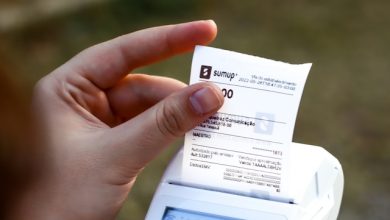How To Handle Bookkeeping As A Sole Proprietor

Starting a business as a sole proprietor is relatively easy. In fact, it is one of the most basic business structures to choose from. There are many pros and cons that come with establishing a business as a sole proprietor and it is important to carefully weigh these before making the decision to opt for this style. On top of that, all sole proprietors need to have a working understanding of how to handle their books, especially if they will be running their business alone.
Bookkeeping does not have to be complicated. Just because numbers and finances may not be your forte, there is no reason why you cannot learn the basics that you need to start a business. To help you out, there are some tools and tips that are valuable for getting started.
Let’s look at how you can handle your bookkeeping as a sole proprietor.
Invest In Accounting Software
One of the best things you can do to handle your bookkeeping as a sole proprietor is to invest in a good accounting software package. Accounting software in NZ is easy to use and is easy to learn. As long as you have a basic understanding of bookkeeping principles, you will be able to use it with ease when handling your financial information.
Accounting software allows you to keep your books far more organised than using a paper-based system or even a system that is based on a spreadsheet. Contemporary software also allows you to generate all manner of reports and analysis on your financial data which can highlight where your business could stand to improve or cut back on spending.
Know The Basics Of Tax Preparation
Accounting software will help you to stay up to date with your reporting to make tax filing a breeze. However, even with accounting software, it is important to be well informed about your tax obligations as a sole proprietor. Usually, small businesses pay taxes every quarter to avoid a massive tax payment at the end of the fiscal year. However, this may vary depending on your unique situation.
Establish Separate Bank Accounts
As a sole proprietor, you will need to set up separate chequing and credit accounts for your business transactions and for your personal expenses. Although this might take some getting used to, it makes sorting out your business bookkeeping a lot easier in the long run.
Learn Best Practices For Invoicing
Every sole proprietor needs to get into good habits when it comes to invoicing. Without a well-organised invoicing system, you may neglect to send out invoices or may neglect to follow up on outstanding invoices after they have been sent out. This can lead to lost revenue that is rightfully owed to you. If you want to ensure that your business stays on top of this – and if you want to make sure that your books add up at the end of the day – then be sure to have an organized and well-conceived invoicing system. Software packages will help with this as well.
Consult With A Professional
When you have questions that cannot be easily answered with an online search or from the use of software, then it is important to seek advice from a professional accountant. While you may not be able to hire an accountant to work for your business full-time, you will benefit from getting advice from someone who works with financial data on a daily basis.
Do Not Let Your Books Get Unorganised
With these tips, there is no need for your bookkeeping to slip away from your control. Advances in bookkeeping and accounting software have allowed these tools to be used by just about anybody with a basic understanding of accounting principles.




